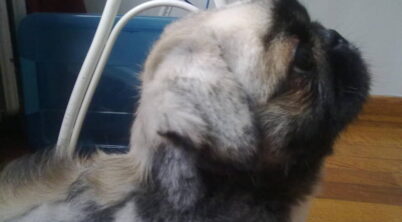Pekingese dogs possess a distinct personality that often endears them to their owners. Known for their loyal and affectionate nature, they can also display an independent and regal temperament, mirroring their historical status as favored pets of Chinese royalty. Despite their charming characteristics, Pekingese are prone to certain health issues that prospective and current owners should be aware of. These small dogs, with their long, flowing coats and compact build, require attention to their physical well-being to maintain a healthy and fulfilling life.
Among the health challenges Pekingese may face, heart disease is commonplace. It can affect their ability to circulate blood effectively, leading to further complications. Factors contributing to heart conditions in Pekingese can include genetics, inadequate diet, insufficient exercise, and excessive weight. Careful management of these areas can help mitigate the risk of heart disease.
An understanding of the breed’s specific health concerns is essential in providing the best care for a Pekingese. Regular grooming is necessary due to their luxurious coat, which also demands frequent attention to prevent skin issues. Additionally, their distinct physical structure predisposes them to orthopedic problems like arthritis and hip dysplasia, as well as respiratory difficulties due to their brachycephalic face structure. A proactive approach in monitoring and addressing these health matters can ensure a Pekingese’s well-being.
Table of Contents
Breed Characteristics and History
The Pekingese, often termed “lion dogs” due to their distinctive mane-like fur, hail from China with deep imperial roots. They were bred as companions for the Chinese royalty and possess a storied pedigree that reflects their status as a breed of nobility. History records that British troops encountered these distinctive dogs during the Opium Wars and brought them to the attention of Western societies, including one member that reputedly became part of Queen Victoria’s collection of exotic pets.
Distinctly recognized by the American Kennel Club, the Pekingese breed boasts a broad spectrum of coat colors, including red, tan, black, white, cream, gray, and sable. Their physical characteristics exhibit a compact, muscular structure, a broad chest, and a confident bearing that belies their small stature. Characteristically, Pekingese are known for their independence and courage; small but brave, they carry a self-important demeanor and an affectionate loyalty towards their owners.
The Pekingese is a toy breed featuring long, lavish hair and an unmistakably flat face, akin to other brachycephalic breeds such as the Shih Tzu and Pug. The breed’s long and opulent coat demands regular grooming to maintain its luxurious appearance. Adherence to proper grooming practices is part of responsible ownership, as it ensures both the beauty and health of these regal canines.
Common Health Challenges
Pekingese dogs are predisposed to several health issues that require attentive care and prevention. Owners should be aware of these potential challenges to maintain their pet’s well-being.
Breathing Issues
Pekingese dogs often face breathing problems due to their brachycephalic (short-faced) structure. Obstructed airways can lead to snoring and increased risk of heatstroke as the breed has difficulty panting effectively. Overheating should be closely monitored, especially during hot weather.
Eye Conditions
Eye problems in Pekingese can range from mild irritations to serious conditions that can cause blindness. Diseases like dry eye (Keratoconjunctivitis sicca or KCS) and Progressive Retinal Atrophy (PRA) are common. This breed’s prominent eyes are also prone to corneal ulcers, requiring regular veterinary check-ups.
Orthopedic Problems
Pekingese are susceptible to several orthopedic problems:
- Patellar luxation, a condition where the kneecap dislocates.
- Arthritis, often due to the breed’s compact structure and weight.
- Hip and elbow dysplasia, which can lead to pain and mobility issues.
Regular vet visits can help in early diagnosis and management.
Skin and Coat Health
Due to their dense coats and skin folds, Pekingese can suffer from skin and coat health issues like:
- Skin fold dermatitis, an inflammation within the skin folds, often due to moisture.
- Skin infections which can arise in densely coated areas if not properly groomed.
Implementing a routine grooming schedule is crucial.
Obesity and Related Diseases
Obesity is a significant concern in Pekingese dogs, leading to a higher likelihood of heart disease and exacerbating existing health conditions. A balanced diet and moderate exercise are essential for weight management. Overweight Pekingese may struggle with additional strain on their joints and respiratory system.
Living With a Pekingese
The Pekingese breed presents a unique set of considerations for an owner, from their distinct personality traits to the management of their health. Understanding these specifics can ensure a long and happy life for these cherished companions.
Long-term Health and Lifespan
A Pekingese typically has a lifespan of 12 to 14 years. They are a toy breed, compact in size, often considered perfect lapdogs, which can make them great companions for families as well as for individuals. Their loyalty to their owners is noteworthy, but it should be noted that this can lead to separation anxiety if left alone for long periods.
These dogs were historically known as ‘sleeve dogs,’ carried around and pampered by Chinese royalty; this legacy of close human companionship persists to this day, making them somewhat sedentary ‘sun dogs’ that enjoy comfort and affection. While they do enjoy activities like fetch, they are not particularly active dogs and have a low propensity for jumping due to their compact build.
Owners should be aware that while the Pekingese can be delightful around children, their independent personality may not suit overly rambunctious play. Early socialization is important for a Pekingese to develop a well-rounded temperament.
Concerning health, Pekingese dogs are predisposed to certain conditions:
- Heart disease is not uncommon in the breed and relates to the heart’s ability to pump blood efficiently.
- Ensuring they do not become overweight is crucial as obesity can exacerbate potential health problems.
- Regular grooming is essential to prevent skin issues under their long, luxurious coats.
- Due attention must be paid to their diet and adequate exercise to maintain overall health.
The care a Pekingese requires does necessitate a degree of commitment, but their presence as loyal companions and their affectionate nature towards their family can be immensely rewarding for an attentive owner.








